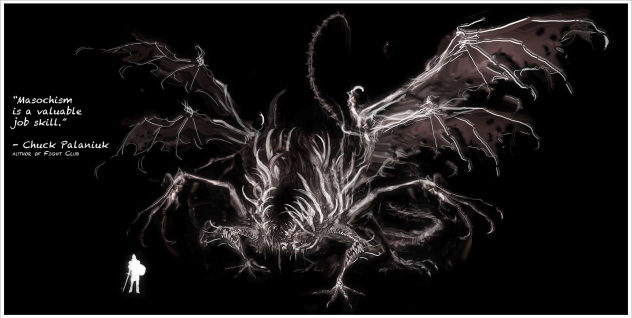Player Empowerment over the Game
There are eight million blogs about Mass Effect’s ending, but is not one of them. Well, not entirely.
Last month, most of us watched, without dissimulating the awe, the rise of the discontent horde profoundly enraged. “What could possibly infurieted some many good people?” your mom might have asked, “Hunger? Social inequality? The public health system? Politics?” to which you probably would have answer “They didn’t liked a videogame ending”. This is a suitable answer, but we both know that it does not translate exactly into what happened, does it? What I do recall was angered petitions, money gathering [which, fortunately, end up going to charity] and enraged forums posts. Oh, my Thor, how many posts. It has even became its own meme. Despite all possible pesky atmosphere all these claims had, it’s clear that ME3 fans organized themselves in order to make their point.
Jane McGonigal links this organization abilities encouraged by games as a dormant potential to change the word. She believes that all those fans, highly capable and organized, are only waiting a chance to use their powers to change the world. Unfortunately, future does not seems so bright at least to me. People not always like the same stuff and specially, people not always like the same kinds of cultural productions. The different spectrum of options is also a part of what makes us humans, after all. And respecting there differences is also a great deal of living in society. However, when a large group of people start believing that their point of view is more important or, even more dangerous, more truthful and do whatever is in their power to prove to every single soul in the world that they are right, then we have what we call radicals or extremists. And that’s pretty similar to what happen to Mass Effect 3.
Erik Kain make some good points on how changing ME3 ending is not a bad choice. He points out, for instance, that corporate decisions already deeply influence artistic direction or that videogames are interactive medium and, as so, players are also creative involved on the game. This last claim, however, is quite a tricky one. Sure, no one that has ever played a game doubts that playing the result of the game itself with player’s choices and inputs, and, as so, most events on any game rely on player’s own abilities and judgement. However, players only can play or interact within option already given to them by developers. Games are a cooperative experience constructed both by players and developers as an experience, but bottom-line, players can only experience what was chosen to be presented to them. Even though there is such a clear distinction, do players in some way own part of the creative content on a game since they have interacted to it?











CmdrEdem 9:16 pm on April 15, 2012 Permalink |
I don`t think players own the right to demand something from developers. They have the right to suggest changes and developers may hear the complains or not. If developers do not hear and address the complaints there may be retaliation business side (ex.: next game from that developer will sell less, a flood of used copies on the marked since people want to get rid of that piece of junk).
Thais 7:18 am on April 16, 2012 Permalink |
I personally agree with you, however complain in one thing while demanding is another, completely different. ME3 fans were demanding a different ending, as if they possessed the rightful call about it since they “had been there” during the events of ME and ME2 as though they, too, own part of the unfolding of the events. Really an weird situation.